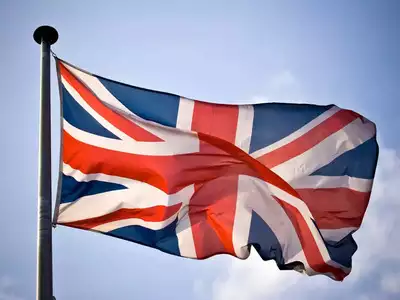Matthew James Goodwin, a prominent British political scientist, recently questioned the media’s handling of the UK’s grooming gangs scandal, suggesting that it has not received sufficient coverage. His remarks sparked criticism from some journalists, but Goodwin is undeterred. He decided to take a closer look at the data to assess the media’s treatment of the issue.
Using data to examine the issue
Goodwin used Lexis, a database employed by researchers to track content across UK newspapers, to analyze media coverage from 2011 to 2025. He made sure to account for criticisms, specifically addressing how the term “grooming gangs” is used in the media. His findings, he insists, will shed light on how the scandal has been covered—or neglected.
Stark media gap before 2011
One of Goodwin’s main points is that until 2011, the media largely ignored the grooming gangs crisis, despite widespread rumors and groups like the BNP and EDL pushing it into public discourse. He credited Andrew Norfolk of The Times for starting early coverage, despite facing abuse and harassment. It wasn’t until 2011 that any major media outlet seriously began to report on the issue.
The numbers don’t lie: Grooming gangs vs other scandals
From 2011 to 2025, Goodwin found a total of 4,659 articles about grooming gangs. On the surface, this may seem like a substantial number, but when compared to coverage of other topics, it appears minimal. For example, the term “white privilege” appeared in 6,146 articles, “anti-Muslim” in 17,152, and “Islamophobia” in 23,461.
Relative neglect in the media
Goodwin points out that while there were certainly outlets that covered the grooming gangs issue, like The Times, the coverage still pales in comparison to other race-related stories. In fact, newspapers like The Guardian had only 113 articles about grooming gangs during the same period, compared to over 3,000 articles on “Islamophobia.”
The BBC’s coverage is similarly skewed. Goodwin found 357 specific mentions of grooming gangs in BBC News and Radio 4 transcripts, while George Floyd’s case generated over 7,500 mentions, and “Islamophobia” garnered over 2,000.
Cultural and political taboo
The political scientist believes that the relative media silence on grooming gangs can be attributed to the media’s reluctance to challenge narratives surrounding immigration, multiculturalism, and “diversity.” He argues that these topics are too politically sensitive for much of the media to address openly, especially when they might contradict the prevailing liberal views held by the educated elites who control much of the UK’s media.
A national scandal that can’t be ignored
In a passionate appeal, Goodwin credits Elon Musk for forcing the UK to reckon with this national scandal. Thanks to Musk’s influence, millions are now learning about the horrors of the grooming gangs for the first time or discovering new, shocking details. Goodwin believes this newfound awareness will lead the public to ask critical questions: Why was this ignored? Who is accountable? What’s being done to stop it?
A call for accountability
Goodwin concludes by urging the UK media to confront the scandal head-on. He believes the media must push the issue to the forefront, give it the attention it deserves, and avoid focusing on distractions like the death of a single American man. The British public, he argues, is paying attention, and it’s time for the media to do the same.
As Goodwin puts it, “Find the truth and tell us the truth. That’s your job.”




